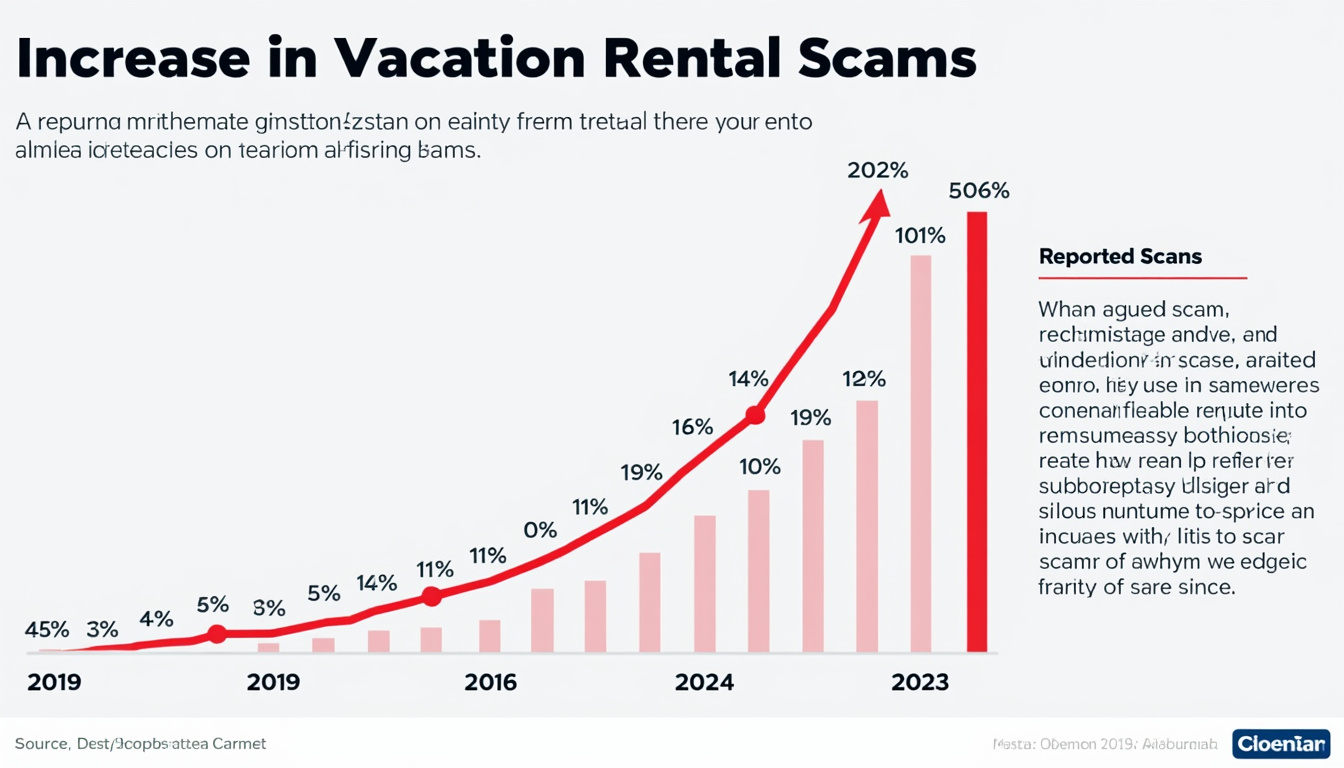The hopes of a family eagerly anticipating a holiday can quickly turn sour when faced with unexpected challenges. In a recent incident involving a family who paid €1,800 for what they believed to be a charming seaside home in Galicia, Spain, their dream vacation transformed into a distressing reality as they arrived to discover that their reserved property did not exist. This unfortunate situation raises significant questions about the reliability of online travel booking platforms, the effectiveness of their customer service, and the extent to which these companies vet their listings.
Expectations vs. Reality: The Unveiling of a Nonexistent Property
Upon their arrival in beautiful Galicia, the family was greeted with a harsh reality instead of the picturesque vacation home they had envisioned. The online listing presented an appealing property complete with beautiful photographs, positive reviews, and a seemingly idyllic location. However, when they arrived at the provided address, they were met with an empty lot, devoid of any sign of the rental home they had paid for. This disillusionment highlights a concerning issue prevalent in the realm of vacation rentals, where the disparity between online representations and reality can be stark.

- High Expectations: The family anticipated a spacious home by the sea, conducive to relaxation and family bonding.
- Reality Check: They arrived only to find an unbuilt plot, leading to immediate stress and confusion.
- Impact on Plans: The lack of accommodations forced them to search for alternatives, incurring unexpected expenses.
This case has brought to light the vulnerabilities associated with booking accommodations through popular platforms like Booking.com. The ease of access to listings is often compromised by the potential for unverified properties. While online platforms host millions of listings globally, the risk of encountering fraudulent or misleading listings cannot be ignored.
Addressing the Issue: Customer Service Response and Challenges
After realizing the property was nonexistent, the family’s next step was to reach out to customer support through Booking.com. Unfortunately, they quickly encountered issues with communication, as their attempts were met with repeated disconnections. This experience has raised substantial concerns regarding the response time and effectiveness of customer service in addressing urgent matters, particularly during travelers’ emergencies.
In analyzing the core of the problem, several points emerge:
- Delayed Response: Customers need immediate resolution, especially when stranded in a foreign country.
- Inaccessible Support: Repeatedly disconnected calls signify inadequate support channels, exacerbating an already stressful situation.
- Miscommunication: Language barriers or lack of clear communication can hinder swift assistance.
Such experiences have prompted calls for a revamp of policies surrounding customer service in the travel industry. Consumers are increasingly demanding transparency from companies about how they handle disputes, particularly those involving fraudulent listings.
Navigating the Risks of Online Vacation Rentals
The rise of online travel booking platforms has revolutionized how people plan their vacations, but this convenience has also given rise to various risks. Incidents like the one faced by the family in Galicia are reminders of how sophisticated online scams can be. Scammers exploit the vast number of listings, often presenting professional-looking images and fake reviews to lure unwitting travelers.

Research conducted by the European Consumer Organisation (BEUC) indicates that misleading practices are prevalent across many platforms, leaving consumers unaware of the potential pitfalls when booking accommodations. Key factors contributing to the persistence of scams in this space include:
- Professional Imagery: Scammers use attractive photos that can entice potential renters.
- Fabricated Reviews: Many listings are bolstered by fake positive testimonials to enhance credibility.
- Weak Verification Processes: With millions of listings, it is challenging for platforms to conduct thorough vetting.
According to a Madrid-based consumer rights lawyer, there is a pressing need for platforms to assume greater responsibility for the rentals they advertise. Additionally, customers should be aware of the signs of less credible listings and have strategies in place to mitigate risks while booking their travels.
Tips for Protecting Yourself While Booking Rentals
To minimize the potential for a situation like that faced by the family in Spain, it is vital for travelers to adopt precautions when booking vacation rentals online. Consider the following advice:
- Research Thoroughly: Look for verified listings and read multiple reviews across different platforms.
- Verify Contact Details: Ensure that the host can be contacted before booking.
- Use Trusted Platforms: Platforms like Airbnb, Vrbo, and Expedia generally offer higher security measures.
- Check Cancellation Policies: Navigating the fine print can save money in case of cancellations.
Being knowledgeable about these aspects can greatly reduce the likelihood of encountering issues, fostering a safer travel experience.
The Role of Regulations in the Vacation Rental Industry
As the incidents of fraud grow, there is an increasing need for regulatory oversight to govern how activities in the vacation rental sector are managed. Regulatory bodies have started to scrutinize the practices employed by major travel booking platforms. For instance, the European Commission has been vocal in urging platforms like Booking.com and others to improve clarity regarding their vetting processes and rapid response protocols, particularly for distressed travelers.
The steps being considered include:
- Stricter Liability Rules: Companies would bear greater responsibilities for the listings they endorse.
- Enhanced Transparency: Platforms would need to disclose the verification processes utilized for listings.
- Improved Customer Support Infrastructure: To adequately assist users during emergencies.
By increasing accountability within the industry, travelers could potentially enjoy a more secure environment while planning their vacations. However, implementation of these changes is essential to ensuring that they translate into real-world impacts.
Consumer Advocacy and Collective Action
Consumer advocates have begun to emerge, campaigning for more rigorous regulations and better protection for travelers. Public awareness campaigns target enhancing consumer knowledge around rental scams and pitfalls associated with online bookings. There is a growing narrative pushing for collective action among consumers to foster change in the industry.
- Education Initiatives: Programs designed to inform travelers about their rights.
- Consumer Group Involvement: Collective efforts to advocate for stronger regulations.
- Feedback Mechanisms: Establishing channels for travelers to report fraudulent listings and inadequate assistance.
These endeavors seek to empower vacationers, enabling them to enjoy their travels without fear of being conned or left stranded. Organizations are gradually realizing the importance of unity in driving change and are mobilizing consumers to participate actively in the push for improved standards in the travel and rental industry.
Conclusion: The Future of Vacation Bookings
As the landscape of travel continues to evolve, the balance between convenience and safety must remain a priority. Experiences like those faced by the family in Galicia serve as poignant reminders of the risks involved when booking accommodations online. The potential for fraud underscores the importance of transparency, robust customer support, and significant regulatory oversight in shaping a safer travel environment. Moving forward, stakeholders in the industry must collaborate to develop solutions that promote consumer trust and safeguard the satisfaction of those seeking their dream vacations.
